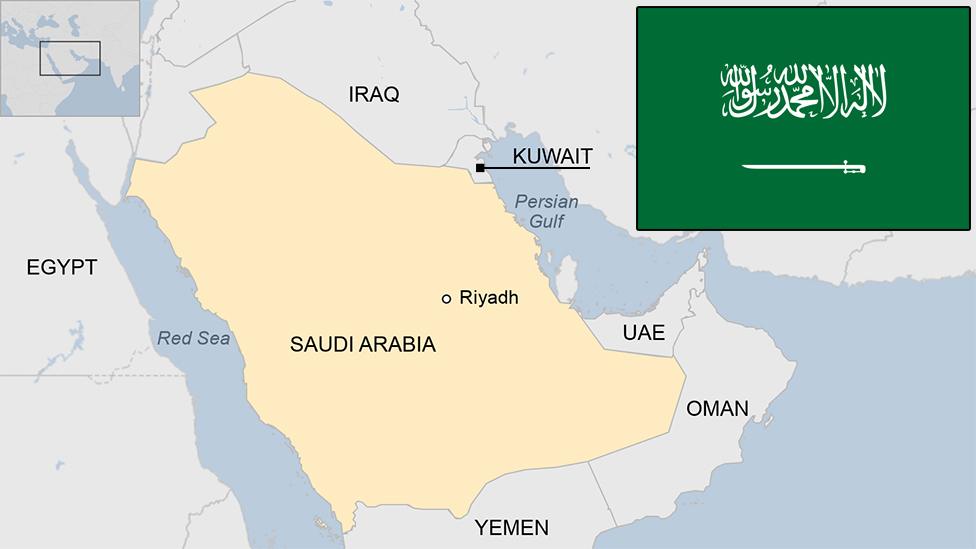Can Obama Saudi visit stem deteriorating ties?
- Published
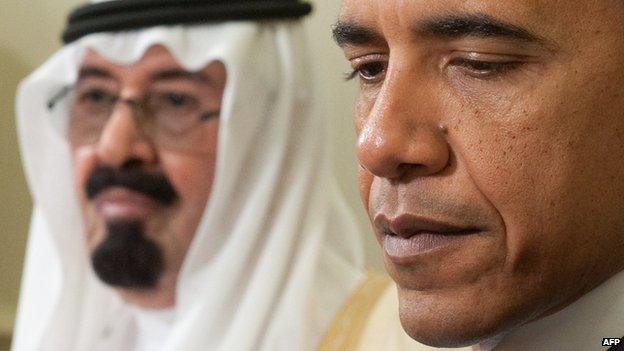
President Barack Obama increasingly defines US interests differently to those of King Abdullah
Relations between Washington and its long-standing ally Saudi Arabia have sharply declined in recent months over US policy in the Middle East - now even a visit to Riyadh by President Obama might do little to narrow the differences, reports the BBC's Kim Ghattas in Washington.
US officials briefing reporters ahead of the trip have said little of substance about what they expect, other than to say it is very important.
Ben Rhodes, the president's deputy national security adviser, did acknowledge that there were disagreements between the two countries.
One of them has already put a small damper on the trip.
On Tuesday, the White House said it was "very disappointed" that the Saudi authorities had refused to grant a visa to an American journalist, external based in Washington working for the Jerusalem Post.
Despite pleas by National Security Adviser Susan Rice and other officials, Riyadh did not budge.
Officials also gave no hints ahead of the trip about what Mr Obama might be able to say or do to assuage the concerns of America's long-time ally.
Egypt tension
The president last travelled to Riyadh in May 2009, just before his landmark Cairo speech where he laid out his vision for US re-engagement with Muslims and Arabs. He was still fresh in the job and popular, and King Abdullah himself had warmly welcomed his election.
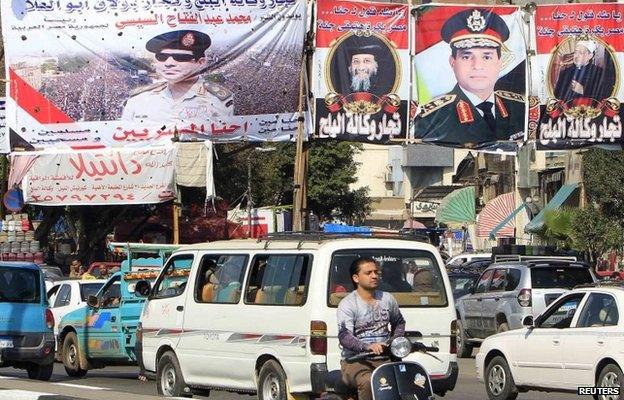
Riyadh has provided Egypt with billions of dollars of aid since the army toppled President Mohammed Morsi
But none of that was enough to make the visit a success. Mr Obama skipped the niceties and came with a laundry list for the ageing monarch, asking for help to push the Israeli-Palestinian peace process forward, but left empty-handed.
Much has changed since then in the region - and not for the better in the eyes of the Saudis. So, Mr Obama is in for a tough trip.
The Saudis have yet to forgive him for turning his back on Egypt's former President Hosni Mubarak in 2011.
They actively opposed US policy in post-revolutionary Egypt, and supported the ousting by the military of the elected Islamist President, Mohammed Morsi, last summer.
When the US suspended a large part of its aid for the Egyptian military following a deadly crackdown on the Muslim Brotherhood in August, Riyadh promised that it would help make up for the shortfall.
The US has been slowly returning to business as usual with Cairo, but this week's court ruling in Minya province sentencing to death more than 500 Morsi supporters - described as "flagrant disregard of basic justice" by the state department - will add another layer of tension in Mr Obama's conversation with King Abdullah about Egypt.
The Saudi government has itself just declared the Muslim Brotherhood a terrorist organisation.
Saudis 'betrayed'
There have also been deep disagreements between Washington and Riyadh over the conflict in Syria during the last three years.
They escalated into a very public spat in September, after Mr Obama decided to call off military strikes against President Bashar al-Assad's forces in the wake of a chemical weapons attack in Damascus that left hundreds of people dead.
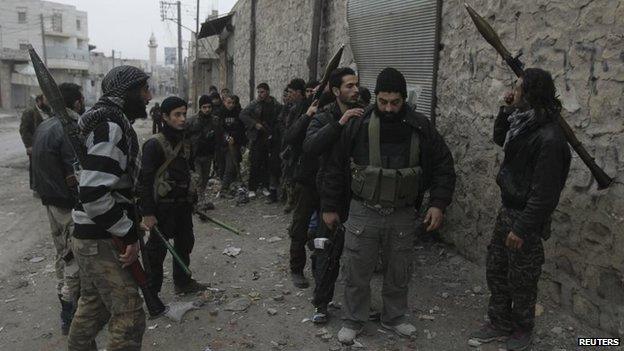
Saudi Arabia's crown prince has accused the world of betraying the rebels in Syria
The Saudis were furious and dismissed Mr Obama as weak.
Publicly, the US still insists that there is no military solution to the conflict despite the clear failure of the Geneva peace talks last month.
But Saudis will argue that there is no political solution without first changing the balance of forces on the ground by increasing military aid to the rebels.
So far, President Obama has been reluctant to go beyond limited support for the opposition, including non-lethal aid and training of a small number of rebels.
The Saudis are actively arming the rebels and want to do more in coordination with the US. The king will press on Mr Obama that it's time for more decisive action on Syria.
And with any illusion of cooperation with Russia on Syria now shelved, the American president may be tempted to push back against Putin there.
But the biggest crisis between the two allies came when the US started to engage with Iran's new President Hassan Rouhani last year.
Saudi Arabia felt further betrayed when it turned out that US and Iranian officials had for months been conducting secret negotiations about Iran's nuclear programme that helped pave the way to the interim deal reached at talks in Geneva in November.
In protest at Washington's regional policies, in October Saudi Arabia declined a seat on the UN Security Council, after lobbying for more than a year to get it.
There have also been reports about the Saudis asking Pakistan for help with training Syrian rebel groups and even for nuclear weapons to deter an attack by Iran.
Diverging interests
Mr Obama will try to make the case to the Saudis that he will not accept a long-term nuclear agreement with Iran that would be bad for them, and that an agreement putting clear limits on Tehran's nuclear ambitions is also in the interest of Riyadh.
But the Sunni royals feel encircled by Shia Iran and its allies in Iraq, Syria, Lebanon, Yemen and Bahrain, and are worried the US is indifferent to the anxiety this causes for the kingdom.
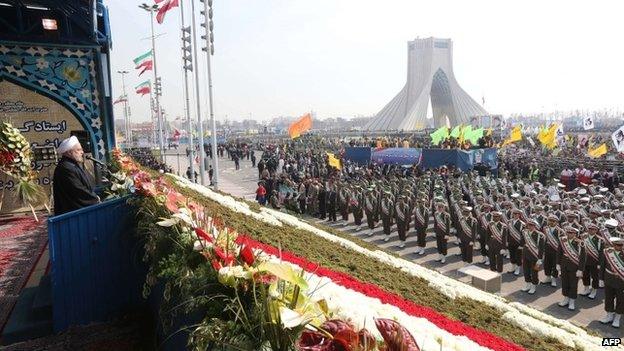
Sunni-majority Saudi Arabia vies with Shia-majority Iran for regional power and influence
The Saudis may not be entirely wrong.
At the heart of the rift between the allies are incompatible views about what US policy should be in the region.
Mr Obama has increasingly defined what he believes is in America's interests separately from what the Saudis feel is best for them - something once unthinkable in Washington or Riyadh, especially on the issue of Iran.
Although Washington has no illusions about Tehran, a nuclear deal is a top priority for Mr Obama's national security agenda, one that could possibly allow the US to modify its military posture in the region.
Mr Obama is not much of a cajoler and is less willing than his predecessors to be distracted in his goals by the noises allies make.
Late last year, the Saudis warned that the kingdom was ready to go it alone and there would be a major shift away from Washington.
For more than six decades, the arrangement between the two allies has been one of oil-for-security.
While the US is no longer a major importer of Saudi oil, Saudi Arabia still needs the US for its security.
But erratic Saudi policies could undermine US goals, including a deal with Iran, so President Obama will likely try to sooth ties with the kingdom just enough to bring down the temperature and ensure the Saudis stay close.
- Published19 December 2013
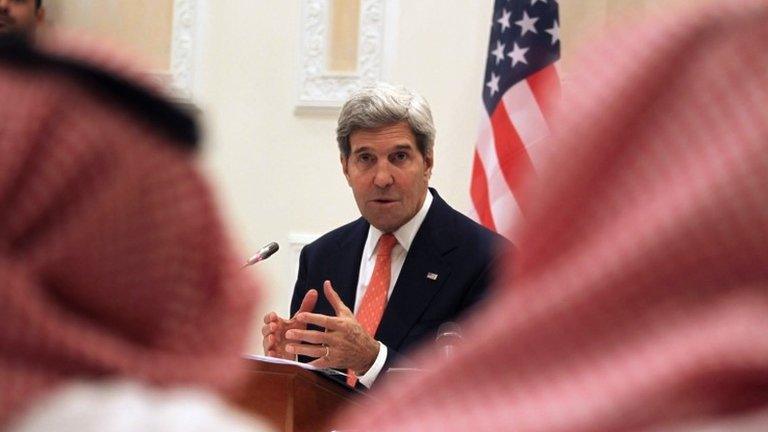
- Published5 November 2013
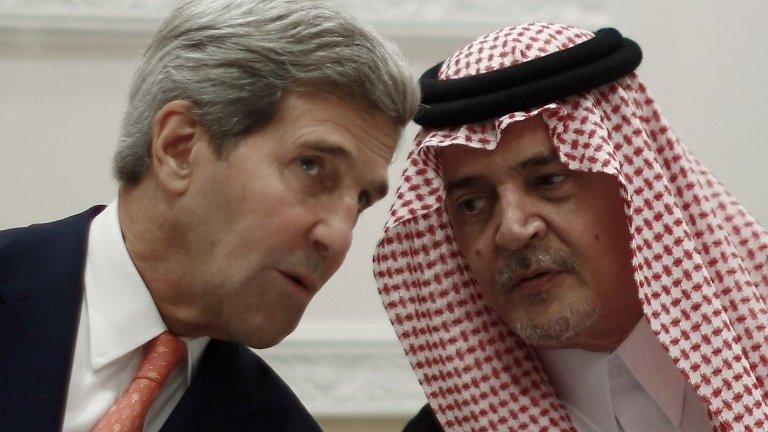
- Published23 October 2013
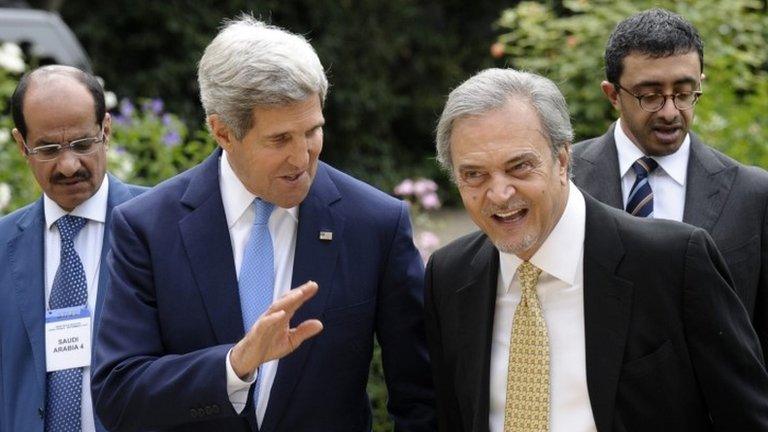
- Published18 October 2013
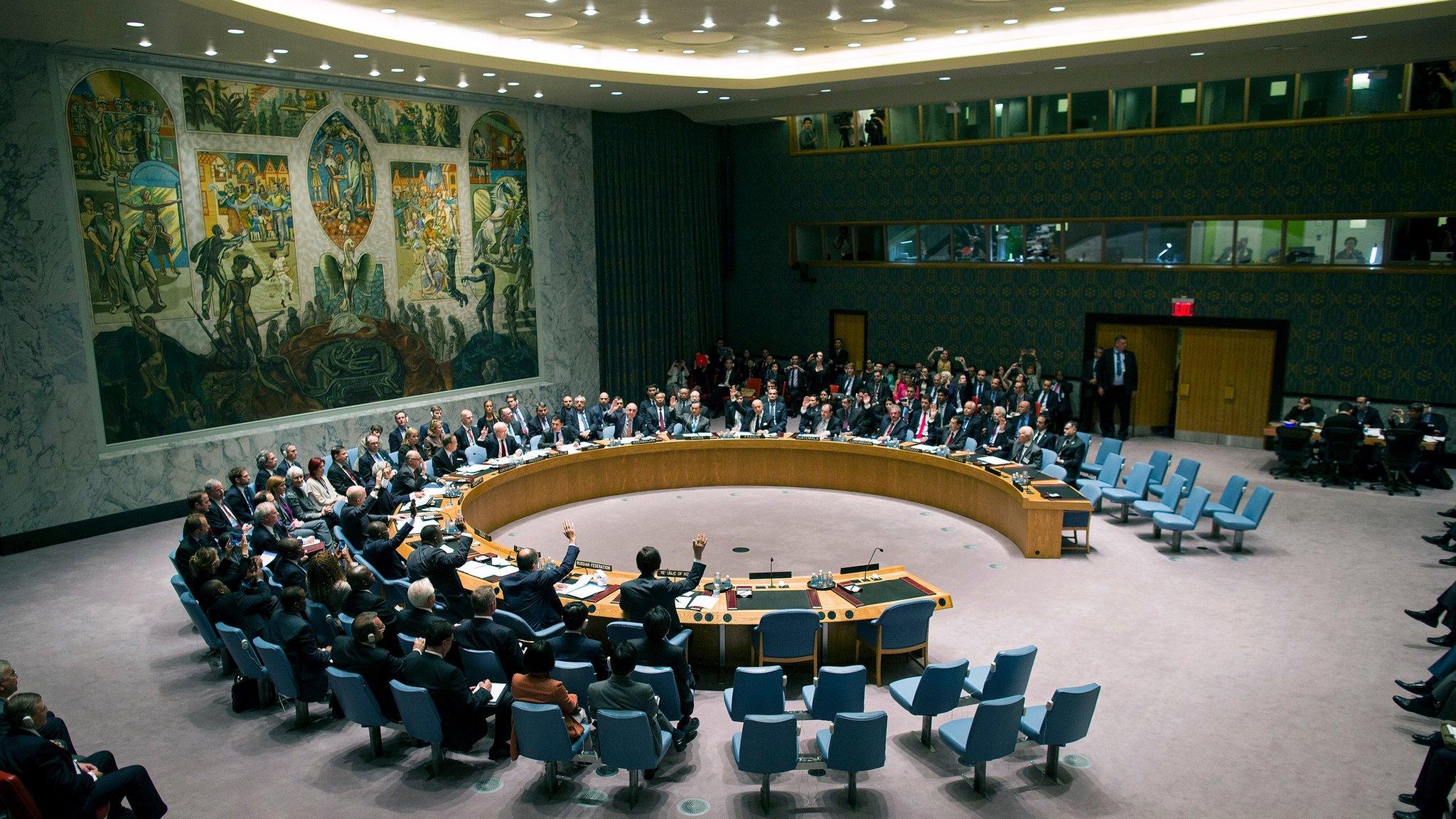
- Published29 August 2023
